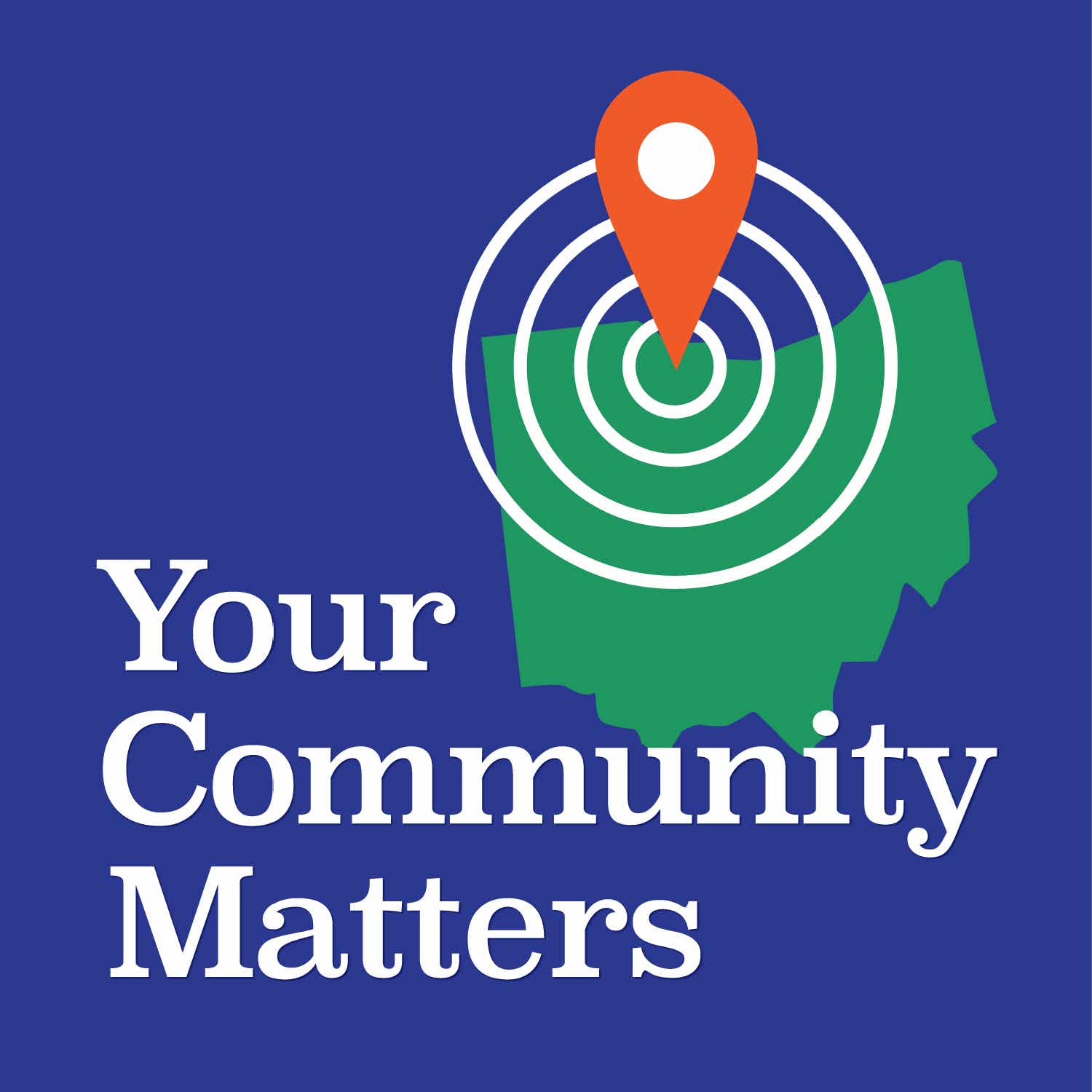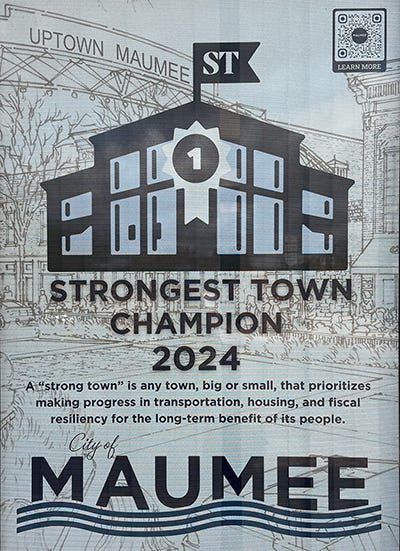Your Community Matters Podcast

Your Community Matters Podcast
Podcast Description
Your Community Matters looks at macro concerns through a micro lens: the Northwest Ohio region, and people who are working to make their community better. Their stories are local, but their concerns are common to people across the country.
This podcast features uncut versions of the 27-minute weekly radio show that airs Tuesdays at 8 PM on Toledo’s public access radio channel, WAKT 106.1 FM. The radio station is itself a project undertaken by area citizens to make our community better, and can be accessed globally via livestream at toledoradio.com. yourcommunitymatters.substack.com
Podcast Insights
Content Themes
The podcast focuses on community improvement, local artistry, and public engagement initiatives, with episodes exploring topics such as funding challenges in the arts and creative community connections, illustrated by interviews with individuals like mosaic glass artist Gail Christofferson, who shares her experiences of overcoming obstacles in her artistic journey.

Your Community Matters looks at macro concerns through a micro lens: the Northwest Ohio region, and people who are working to make their community better. Their stories are local, but their concerns are common to people across the country.
This podcast features uncut versions of the 27-minute weekly radio show that airs Tuesdays at 8 PM on Toledo’s public access radio channel, WAKT 106.1 FM. The radio station is itself a project undertaken by area citizens to make our community better, and can be accessed globally via livestream at toledoradio.com.
Due to a series of difficult personal circumstances earlier this year, I was unable to post a podcast version of my conversation with Maumee City Manager Patrick Burtch at the time the two-part radio show originally aired on WAKT 106.1 FM in late spring.
It was thus with some sadness that I saw the news of Mr. Burtch’s resignation this past week, so I’m changing the podcast posting schedule to share here what I experienced as a heartfelt accounting of his motivations as Maumee city manager.
As I noted during my conversation with Mr. Burtch, I became aware of his perspectives on civic infrastructure when I attended a talk he gave about Strong Towns. I was impressed by his analysis of why government has so much difficulty addressing challenges with civic infrastructure, and I wanted to know more about Maumee’s significant traffic-flow makeovers.
My purpose in hosting Mr. Burtch as a guest on Your Community Matters was specific to the mission of the show: I wanted to learn how Maumee made changes to their public spaces that earned them the title of Strongest Town Champion in 2024, and how other communities could do likewise.
Not having been a resident of Maumee, I was unprepared for how much of our conversation would be taken up with the sewer issues that had created so much controversy among the town’s citizens. I also learned that some in Maumee were not at all pleased about the changes made to the downtown traffic flow or the recognition that the town received as a result. (Photos here show downtown features that Mr. Burtch describes in this podcast, including how the street narrows as traffic flows into the business district. The second photo suggests how constant semi-truck traffic between Amazon warehouses, mentioned in the podcast, could impact the area.)
The lesson for me from this interview and recent coverage of Mr. Burtch’s resignation was that creating visionary public spaces and solving major infrastructure challenges is quite difficult, to say the least. There are many reasons for this, but one of the biggest is that when one risks making a politically unpopular decision, it is generally safer to do nothing.
What’s more, when citizens do not agree on the nature of a problem, let alone a proposed solution to it, decisive action can come at a political cost — especially if those solutions create financial issues for a significant number of people, as was the case in the town of Maumee.
I greatly appreciated the insights Mr. Burtch shared in this podcast concerning the technical aspects of managing a city or town, as well as his candid views on difficulties community leaders encounter. Managing the conflicting priorities of local constituents while also complying with state or federal laws and balancing a municipal budget is not for the faint of heart — especially at a time when many people have lost confidence in institutions and do not know who to trust. His observations are instructive for anyone who cares about their municipal government, and also seem particularly relevant to how things subsequently unfolded in Maumee — so it feels timely to share them with you now.
Thanks for reading Your Community Matters! This post is public so feel free to share it.
With our next post, we’ll encounter the story of a grass-roots response to similar issues in Perrysburg, Ohio, the community across the river from Maumee. We’ll explore the tension between efficient traffic flow and pedestrian safety, and how thoughtful strategy and person-to-person communication helped open new directions for discussion in the public arena.
Your Community Matters is a reader-supported publication. To receive new posts and support my work, consider becoming a free or paid subscriber.
Get full access to Your Community Matters at yourcommunitymatters.substack.com/subscribe

Disclaimer
This podcast’s information is provided for general reference and was obtained from publicly accessible sources. The Podcast Collaborative neither produces nor verifies the content, accuracy, or suitability of this podcast. Views and opinions belong solely to the podcast creators and guests.
For a complete disclaimer, please see our Full Disclaimer on the archive page. The Podcast Collaborative bears no responsibility for the podcast’s themes, language, or overall content. Listener discretion is advised. Read our Terms of Use and Privacy Policy for more details.